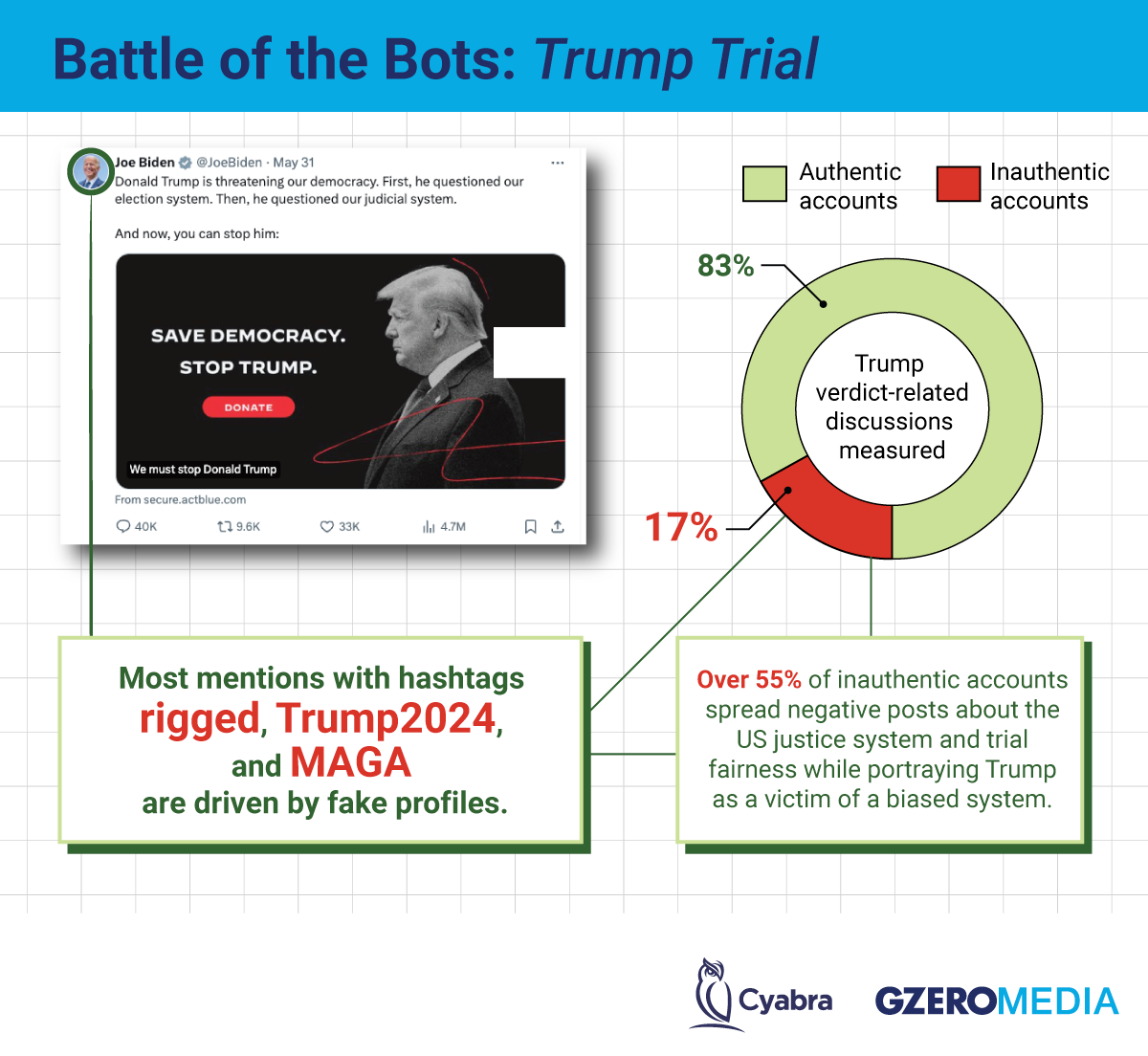June 19, 2024
Talk about courting attention. Former President Donald Trump’s guilty verdict in his hush money trial on 34 felony counts captured the public’s imagination – some to rejoice, others to reject – and much of the debate played out on X, formerly known as Twitter.
But, dearest gentle reader, we humans were not alone. Internet bots also immediately got to work to manipulate the online conversation. As a part of our ongoing investigation into how disinformation is affecting the 2024 election and US democracy, we partnered with Cyabra, a disinformation detection firm, to investigate how fake profiles online responded to the Trump trial.
After analyzing 22,000 pieces of trial-related content, Cyabra found that 17% came from fake accounts. While real people made up the majority of posts, 55% of the inauthentic posts were aimed at discrediting the US justice system and portraying Trump as a victim of a biased system.
Regardless of how one feels about Trump’s criminality, posts like these further endanger voters’ faith in institutions at a time when trust in them is already at an all-time low. Plummeting trust in institutions is also fueling conspiracy theories. To learn about the theories with the biggest influence on the 2024 election, check out GZERO’s new immersive project here.
More For You
- YouTube
In this Quick Take, Ian Bremmer breaks down the growing tensions between the US and Iran, calling it "the next area of potential large-scale conflict where President Trump is interested in changing the facts on the ground."
Most Popular
A flood victim stands at her flooded home after weeks of heavy rainfall in Boane District, Maputo, Mozambique, January 19, 2026.
REUTERS/Amilton Neves/File Photo
392,000: The estimated number of people displaced across Mozambique by recent rain-induced floods. Severe flooding in the southern African nation, as well as in South Africa and Zimbabwe, has killed over 100 people.
© 2025 GZERO Media. All Rights Reserved | A Eurasia Group media company.
